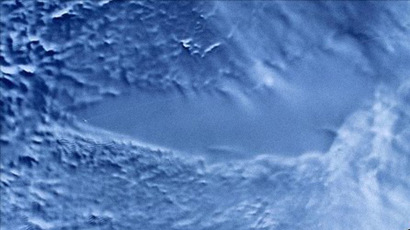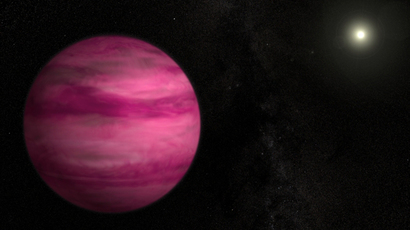Detailing origin of the universe: Russian astrophysicists grab $500k Gruber Cosmology Prize
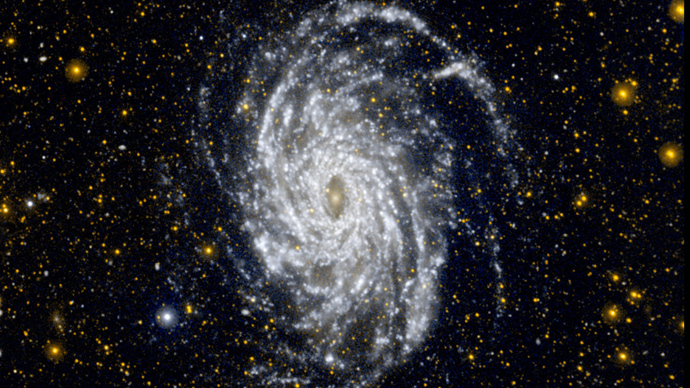
Two Russian astrophysicists have received a prestigious scientific award for their work in understanding the evolution and structure of the universe. Besides joining the scientific elite, the great minds will share a half a million-dollar prize.
The 2013 Gruber Cosmology Prize acknowledged the outstanding work
by Vyacheslav Mukhanov and Aleksey Starobinsky, in transforming
the humankind’s views on the “origin of the universe” and
the mechanisms of its “formation of structure,” according
to the Prize citation.
The two men will share the $500,000 prize that has been presented
on September 3 during the international COSMO2013 conference held
at the Stephen Hawking Centre for Theoretical Cosmology in
Cambridge University.
The Gruber Foundation at Yale University says that the physicists
provided answers to two major questions in cosmology, “why is
the structure of the universe so uniform on the largest
scales? Where did the departures from that uniformity—such
as galaxies, planets, and people—come from?"
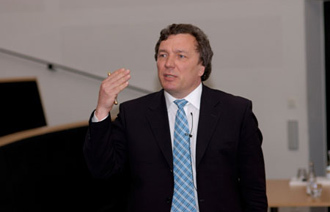
Their research for “Developing Theory of Universe’s Earliest Moments” is being honored for its great contribution to the development of the foundations of modern theories of the universe's expansion, which began with their models in the late 1970s and early 1980s.
In particular, they suggested that quantum fluctuations existed
in the first moments after the Big Bang.
“The profound contribution to inflationary cosmology and the
theory of the inflationary perturbations of the metric of
space‐time. This theory, explaining the quantum origin of the
structure of our universe, is one of the most spectacular
manifestations of the laws of quantum mechanics on cosmologically
large scales,” the awards reads.
The theoretical investigations into the earliest moments of the
universe for both men began in the late 1970s and early 1980s
after astronomers in 1965 had discovered the cosmic microwave
background.
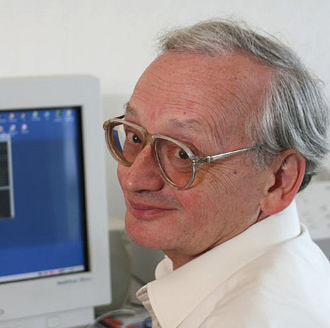
Aleksey Starobinsky used quantum mechanics and general relativity
to try to answer how the universe might have originated. In
1979/80, he indicated that the universe underwent a rapid
exponential expansion in the first moments of its existence. He
developed the first working model of inflation and calculated the
generation of gravitons during inflation.
The following year Starobinsky’s two colleagues Vyacheslav
Mukhanov from the Moscow Physical-Technical Institute and now
deceased G. V. Chibisov from the Lebedev Physical Institute in
Moscow started working on quantum fluctuations within the
Starobinsky model. By 1981 Mukhanov and Chibisov discovered
that Starobinsky’s fluctuations could play a role in germinating
cosmic structures such as galaxies, clusters of galaxies, and
superclusters of galaxies.
The Gruber Foundation at Yale University is a non-profit
organization dedicated to the advancement of science. The Gruber
Prize in Cosmology is one of five international awards made by
The Peter and Patricia Gruber Foundation. It honors leading
cosmologists, astronomers and astrophysicists for theoretical,
analytical, conceptual or observational discoveries “leading
to fundamental advances in our understanding of the
universe.”
Over the last thirteen years since the prize was established, it
was awarded to such prominent figures as Charles Steidel, Alan
Guth and Andrey Linde.
In 2003 Gruber Prize in Cosmology was awarded to another Russian
scientist, Rashid Sunyaev for “pioneering work on the nature of
the cosmic microwave background and its interaction with
intervening matter.”













